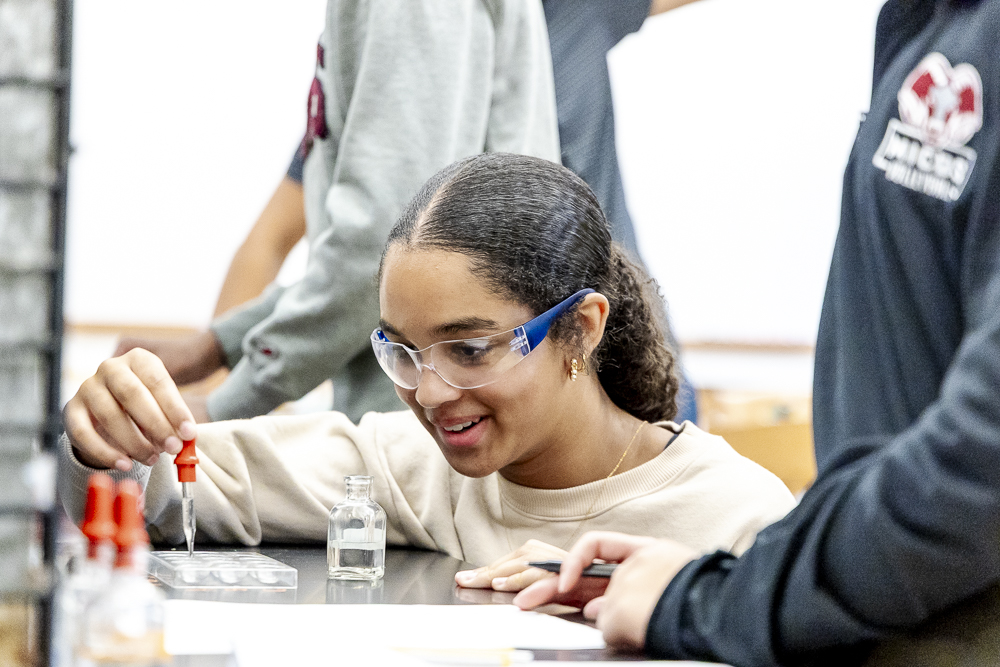The Benefits of Stress
By Scott Small, Head of Upper School
As we approach Winter Break and the intervening stress points that accompany end-of-semester assessment responsibilities in the Upper School, I am reminded of a 2013 TED Talk from psychologist Kelly McGonigal that has stayed with me. Her presentation on the potential benefits of stress surfaced at a time when much of the national discussion was focused on the negative impact of stress on growth, achievement, and well-being, and the need to reduce stress points in the academic calendar. Her assertion is that stress isn’t always the negative we assume it to be, especially if we can shift our mindset not only in why we experience stress but also in how we respond to it, both physically and mentally.
Dr. McGonigal’s talk remains timely as we perennially (and often daily) wrestle with how best to support our students’ growth and achievement and the impediment that stress seems to represent in this endeavor. Indeed, her analysis and resulting conclusions (more on the specifics of both below) suggest that we should be much more nuanced in our understanding and ensuing response to stress, as there are instances when it can actually be advantageous to our overall goals for student growth and achievement. To that end, our resulting focus should be more on trying to understand when and what forms of stress are a catalyst for growth in our quest to be our best selves, and when and what forms of stress are indeed significant hurdles in our development and require mitigation strategies.
As she recounted in her presentation, Dr. McGonigal previously believed that any stress was bad stress. But interestingly, as she expanded her research, she started to believe that some stress—specifically stress that is short-lived and related to something terminable like a task or a test or a responsibility—may have positive effects on our minds and bodies. Here was the finding that I thought was most interesting: According to Dr. McGonigal, those forms of stress may improve memory and achievement. As a starting point in laying out her thesis, Dr. McGonigal shared the following surprising fact (or at least it was surprising to me, given their stereotypical existence as sewer dwellers or fleers of sinking ships): rats hate swimming. Researchers forced one group of rats to take a 20-minute swim while another group of rats stayed dry, and then they measured how both groups performed in a maze. In trials that followed both hours after and a day after the swimming took place, the rats who had gone on the stressful swim made significantly fewer mistakes in the maze than the control group.
A more recent study, and hopefully more clearly applicable to our own “test subjects”, looked at the interplay between stress and working memory in human beings. Researchers gave students a test where they looked at nearly identical images in rapid succession and had to note subtle differences between the two. They did a version of this test both before and after a situation specifically designed to spike their cortisol levels. In addition to the inevitable conclusion about resilience and past experience, McGonigal asserts that this is also attributable to a subtle change in how we approach stress. Those who see the body’s natural stress response as a positive preparation for challenging situations—rather than something to worry further about or a sign of actual distress—are more resilient, proactive, and confident going forward. Thus, it is not only about how we approach the task (preparation, confidence) that helps us achieve more in the moment, but also about how we intentionally acknowledge and reconceptualize the accompanying stress itself, which extends that success.
In full disclosure, I am not a scientist and would not profess to have answers about the correlation of swimming rats to teachers, or students, or even high school administrators, but I do know that all of us experience stress over the course of the school year, and that how we respond to that stress is often an opportunity for growth. I worry sometimes that we get caught up in what we perceive is being done to us rather than focusing on our response and how we meet whatever challenges, both real and perceived, are put in front of us. So, just as it remains of critical importance that we continue to work to reduce those significant forms of stress that are deleterious to our students’ success (and help them develop resilience in those moments when life presents hurdles we cannot foresee), there is also a very important opportunity for us to rethink how we will absorb and respond to those stresses that are inevitable (like assessments) and might actually be invaluable and beneficial opportunities for us to stretch ourselves, test our mettle, and find ourselves more capable (and better prepared on the backend) than we realized ourselves to be. Even that mental adjustment might be enough to help gird us for greater success in handling the more ominous variations of stress that will present themselves from time to time. And that again is a critical ongoing demand of all of us: working to recognize when stress is acute and manageable and when it is chronic and overwhelming. At the very least, I hope it arms us with some knowledge and optimism as we navigate the immediate and surmountable stress points of assessments at the end of the semester.
